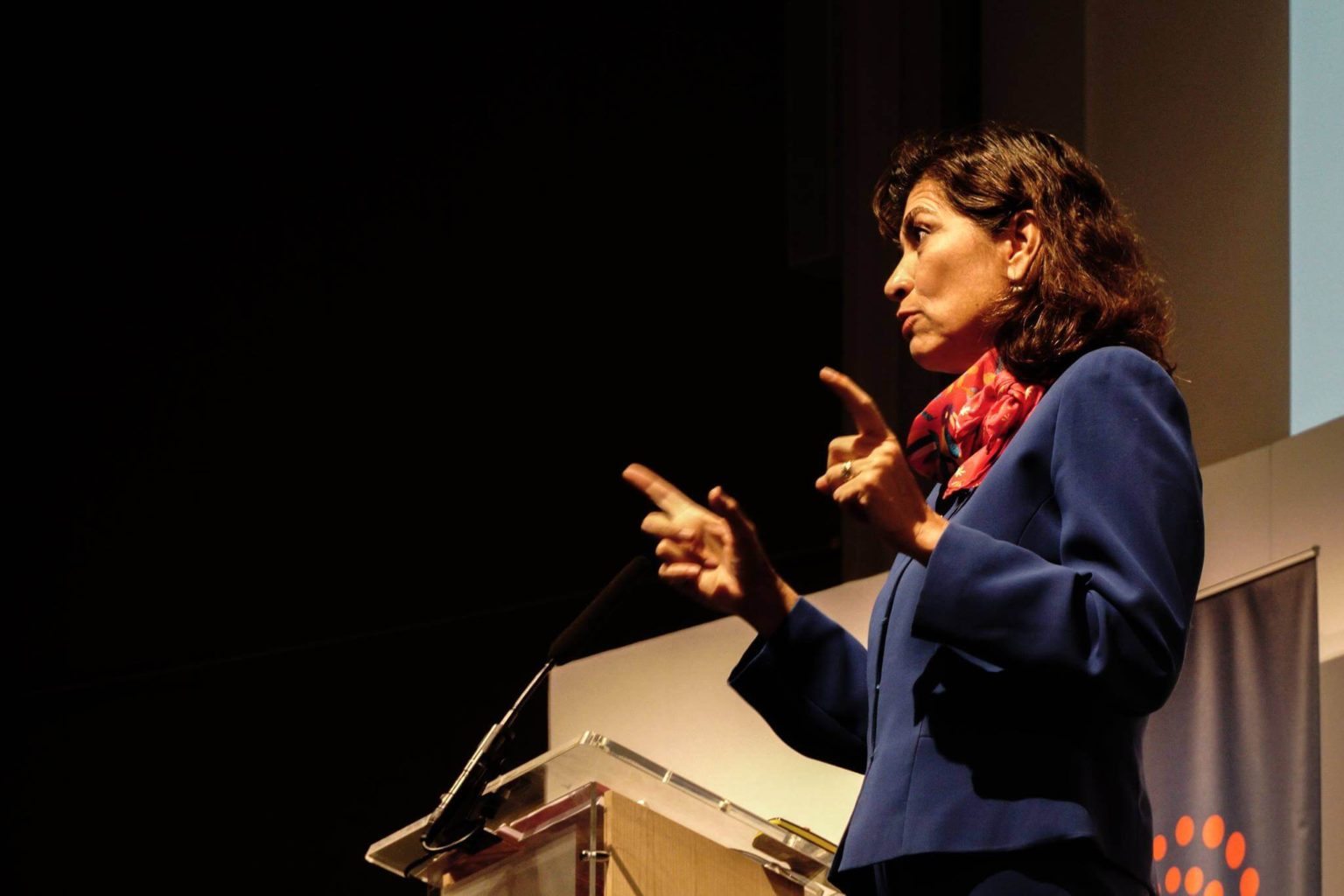OECD Chief of Staff Gabriela Ramos: “Let’s focus on emotions”
“Let’s focus on emotions,” suggested Gabriela Ramos, OECD Chief of Staff and Sherpa to the G20, during the WES 2016.
The modern economy seems to be trapped in models and graphs which do not necessarily reflect how reality works. The 2007-08 financial crisis of seems to indicate a deficiency in modern monetary tools. After all, we failed to consensually predict the economic slowdown. Throughout her speech, Ms. Ramos indicated the source of such failures could be our reliance on inadequate economic models.
“We are putting too much faith in economic models, they should merely capture and describe reality, not the other way round,” she states.
She emphasized that “There is a need for a new growth model.” Indeed, after so many financial disappointments, it may be time to consider economics from a broader, more complex perspective.
There is a need for a new growth model…
What’s wrong with GDP?
It seems that in trying to solve financial questions, economists should widen their focus – including not only numbers, but also about the context in which these numbers arise. “Currently China is saying it has an economic growth of 7%, but what does it exactly mean and whether it is possible to know it for certain? We just don’t know,” Ms. Ramos stated firmly to point out that economic models cannot measure everything.
She warned that we are in danger of becoming ‘slaves’ to our economic models. Moreover, Ms. Ramos offered a fresh perspective on the legacies of the economic crisis. In our narrow vision of economics, we mistakenly relied on that ‘all-encompassing’ measurement – the GDP – which apparently did not tell the whole story.
Taking our GDP goggles off
Ms. Ramos invited us to think about what remains once we take our GDP goggles off, and to ask ourselves, what is outside of this box?
Everything else which “we care about”- underlined the Harvard University graduate. Happiness, well-being, social objectives, fairness, welfare, job quality and working conditions are frameworks we must also take into consideration when building economic policy.
In the real world, there is no equilibrium…
To harness out of the box thinking, Ms. Ramos strongly encourages a comprehensive and mixed approach to how we study the economy.
The understanding of emotions, behavior and alternative metrics strengthen the fundamental models on which policy is based. Ramos says; forget ‘Equilibrium’, “In the real world, there is no equilibrium.” In isolation from all these other aspects, models lose their effectiveness.
Her conclusion was that the new approach to economic growth should begin with our own study of economics. At OECD level, she explains, the journey starts by introducing emotional and social skills learning in its education program – and ensuring these newly regarded aptitudes are more largely accessible.
The crucial question remains as to whether Ms. Ramos’ hopes will materialize. Will the inclusion of new metrics and emotional judgment in the study and application of economics define the future of growth models?
For more coverage of WES, and other related articles, like our Facebook Page

Comments